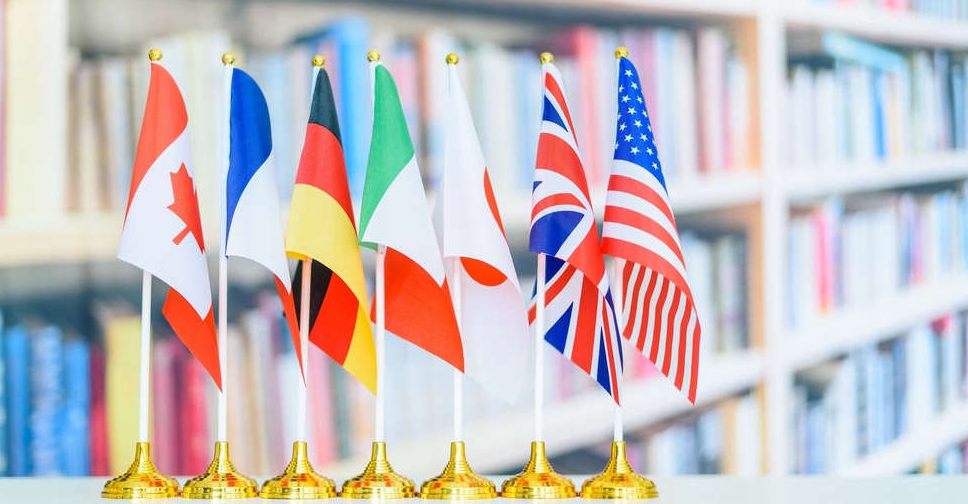
Group of Seven officials have agreed to review the price cap level on exports of Russian oil in March, later than initially planned, to give time to assess the market after more caps are placed on oil products from Russia.
The US Treasury said on Friday.
The G7 economies, the European Union and Australia, agreed on December 5 to ban the use of Western-supplied maritime insurance, finance and brokering for sea-borne Russian oil priced above $60 (AED 220) per barrel as part of Western sanctions on Moscow for its invasion of Ukraine.
The coalition plans on February 5 to set two caps on Russian oil products, one on products that trade at a premium to crude, such as diesel or gas oil, and one for products that trade at a discount to crude, such as fuel oil.
"The Deputies agreed that this approach will better calibrate the price cap policy for refined products, given the wide range of market prices at which these products trade," Treasury said after US Deputy Treasury Secretary Wally Adeyemo met virtually with coalition officials on Friday.
The coalition had initially planned to review the cap level sometime in February, two months after its implementation.
Treasury officials have said the oil price cap has two goals: cutting Russia's revenues by institutionalizing heavy discounts on its oil bought by big consumers like China and India and ensuring global oil markets are well supplied.
"As long as the price cap continues to meet the Coalition's dual goals, the Deputies agreed to undertake a review of the level of the crude price cap in March," Treasury said.
The March date allows the coalition to assess developments in global markets after the implementation of the refined products caps and to be briefed on an EU technical review of the crude price cap, it said.


 Nasdaq set to confirm bear market as Trump tariffs trigger recession fears
Nasdaq set to confirm bear market as Trump tariffs trigger recession fears
 Dana Gas and Crescent Petroleum exceed 500M boe in Khor Mor field
Dana Gas and Crescent Petroleum exceed 500M boe in Khor Mor field
 China to impose tariffs of 34% on all US goods
China to impose tariffs of 34% on all US goods
 Shares bruised, dollar crumbles as Trump tariffs stir recession fears
Shares bruised, dollar crumbles as Trump tariffs stir recession fears
 Wall Street futures sink as tariffs fuel recession fears
Wall Street futures sink as tariffs fuel recession fears




